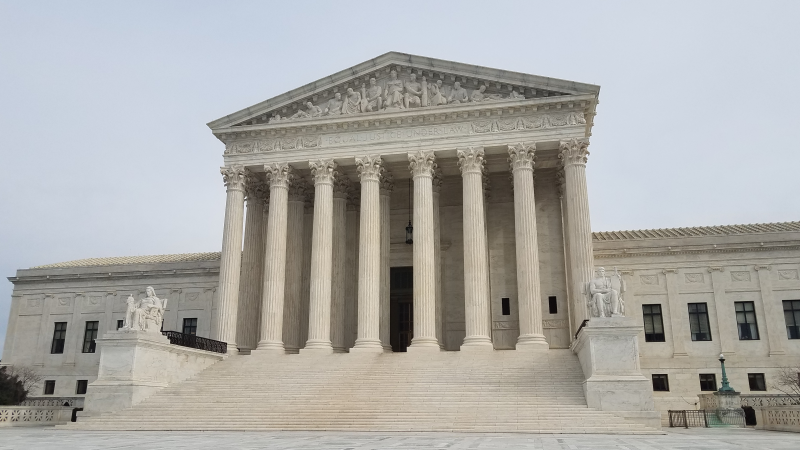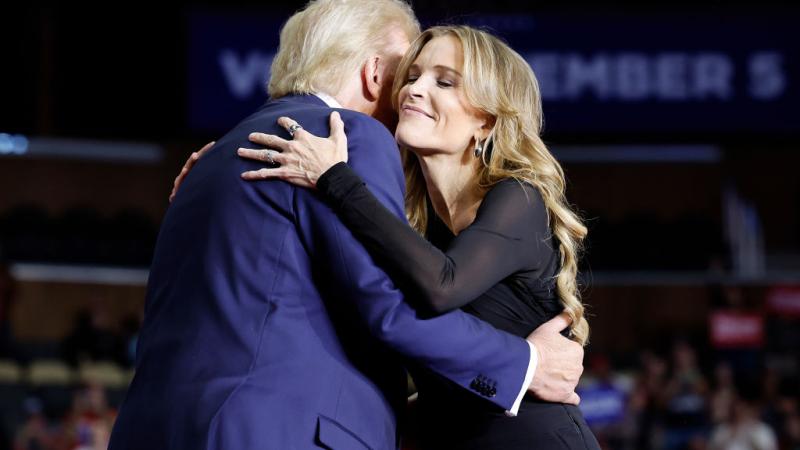Lake, Hamadeh arguments set for next week, as Arizona election challenges persist 7 months later
Kari Lake's case had a hearing on Friday ahead of next week's trial, and Abe Hamadeh's case will begin oral arguments.
Seven months after the midterm elections in Arizona, there are still two races with legitimate challenges before courts that are being heard this month, with trials scheduled for GOP nominees Kari Lake and Abe Hamadeh in their respective governor and attorney general contests.
On Friday, as Lake's legal team provided new evidence in its Arizona gubernatorial election challenge during a court hearing, counsel for defendants Gov. Katie Hobbs (D), Secretary of State Adrian Fontes (D), and Maricopa County election officials sought to dismiss the case.
Last Thursday, the Arizona Supreme Court ordered court proceedings to take place "forthwith" regarding Lake's claim that Maricopa County's violated its signature verification practices in last year's general election. The court granted one sanction but denied the attorneys' fees that defendants had requested.
Lake fell about 17,000 votes short in the official count for the 2022 gubernatorial election against then-Secretary of State Hobbs. She is suing Hobbs, the current Democratic governor, in addition to Fontes and Maricopa County election officials, requesting that the election results be invalidated or that she be declared the winner.
Lake's legal team filed a motion for relief from judgment on Tuesday for Count II, which was previously dismissed by both that trial court and the Arizona Supreme Court, concerning alleged illegal ballot-on-demand printer and tabulator configurations.
The filing alleges that on Oct. 11, 2022, Maricopa County falsely certified the 446 ballot tabulators used for Election Day, saying they passed logic and accuracy testing. In addition, Maricopa County allegedly "secretly tested all 446 vote center tabulators on October 14th, 17th, and 18th, and knew that 260 of the vote center tabulators would fail on Election Day," according to the motion.
Lake's legal counsel also alleged that Maricopa County Director of Elections Scott Jarrett gave false testimony during the trial in December regarding the ballot-on-demand printer failures that occurred on Election Day. Specifically, he said only three vote centers experienced issues with the printers and that it "was caused by temporary technicians changing printer settings in attempt to fix printer problems on Election Day," the filing said.
During the hearing on Friday, Lake's legal counsel cited a new declaration by Jarrett that Maricopa County submitted, saying that, after the certification of the ballot tabulators on Oct. 11, the county realized that they hadn't configured the ballot tabulators to reject provisional ballots.
As a result, the county "went in, rewrote the memory cards, improved the software," and "reconfigured" the tabulator machines, according to Lake's lawyer. This meant that the county had to conduct logic and accuracy testing again, argued Lake's counsel.
Her team also noted that 58% of the ballot tabulators failed logic and accuracy testing and that, according to "testimony of over 200 witnesses who were voters at vote centers, 59% of Maricopa County vote centers experienced severe malfunctions of tabulators."
Lake’s legal counsel also referenced a report by former Arizona Supreme Court Chief Justice Ruth McGregor that Maricopa County commissioned to determine the cause of the issues with voting equipment on Election Day.
The report found that during investigators' "testing, four printers randomly printed one or a few 'fit to page' ballots in the middle of printing a batch of ballots. None of the technical people with whom we spoke could explain how or why that error occurred," McGregor wrote.
The defendants' legal team argued Lake was seeking inappropriate relief for her allegations and that Jarrett's declaration wasn't a "shocking bombshell" or proof of a violation of the logic and accuracy testing requirement. Instead, the security feature to prevent provisional or early ballots from being tabulated by the machines was installed on Oct. 10 onto the sampling of tabulators that were to undergo logic and accuracy testing, which they passed on Oct. 11. Then, the security feature that passed testing on Oct. 11 was installed on the rest of the tabulators.
The legal counsel for Hobbs and Maricopa County also argued for the dismissal of the case regarding Count III, which was remanded to the trial court by the state Supreme Court. The lawyers argued that Lake's team didn't meet the mathematical standard for the number of ballots affected to bring the election results into question and that Maricopa County's signature reviewers followed procedure in the early ballot signature verification process.
Regarding ballot signature verification, Maricopa County's legal counsel stated that reviewing signatures is "a very subjective process" and more of "an art."
The trial for Lake's case is set for May 17-19 in the Maricopa County Superior Court, if the judge rejects the defendants' motion to dismiss the case.
Meanwhile, Hamadeh's case has oral arguments regarding his motion for a new trial scheduled for May 16 in Mohave County Superior Court.
Hamadeh and the Republican National Committee are suing his opponent, Democratic Arizona Attorney General Kris Mayes, to ensure all votes were counted in their midterm election contest, which Hamadeh lost by just 280 votes, according to an automatic statewide recount.
Data from all Arizona counties shows that about 8,000 provisional ballots remain outstanding, AZ Free News reported last month, based on a collaborative analysis by Republican National Committee analysts, outside investigators, and Hamadeh's legal team. Hamadeh won an average of 70% of votes cast by voters on Election Day, and Election Day votes were 2-to-1 Republican.
There were more provisional ballots cast and higher rejection rates last year than in the 2020 election, despite there being fewer voters casting ballots in Arizona for the November 2022 election compared to the 2020 general election.
Nearly 9,000 provisional ballots were rejected statewide during the 2022 general election, and Hamadeh's legal team estimates that, based on their research, at least 1,200 of them across roughly half of the state's counties were "erroneously rejected," former Arizona Assistant Attorney General Jennifer Wright previously told Just the News, and there could be more in other counties.
Those 1,200 provisional ballots were cast by high-propensity voters, which is unusual, Wright explained, because typically provisional ballots are cast by first-time or low-propensity voters who aren't fully aware of all the requirements to vote.
Wright, who joined the lawsuit, argued that some voters were disenfranchised in the Arizona 2022 midterms because their voter registrations were canceled after they were automatically registered in two counties without their knowledge.
She also explained that it's common for Arizonans to have two properties and if they register a vehicle at their secondary property with the motor vehicles department, there is a pre-checked box on a form for that process that moves a person's voter registration to the new location.
In relation to that issue, Hamadeh has also noted that Democratic election lawyer Marc Elias has a case before the Ninth Circuit Court of Appeals regarding voter registration that would help his case.
Elias' law firm is challenging an Arizona election integrity law, arguing that the cancelation of multiple voter registrations for a single voter across different counties could result in voter suppression of populations that frequently move.
"Elias is unintentionally going to get disenfranchised votes from the November 2022 election counted which will upend the Arizona Attorney General race," Hamadeh tweeted last month.
The case from Elias’ group is set to be heard by the appeals court on May 16.















